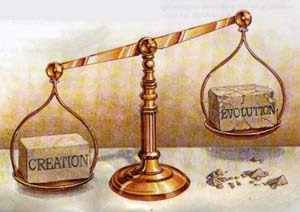Smart, smart people fall for this trap all the time:
“Just once won’t hurt.”
“This is the last time, I swear. No more.”
“I understand this better than other people.”
“I can control it.”
“It won’t affect my friends.”
“My wife won’t find out.”
Oh yes. I know you, dear reader. Well enough to know that if some of these exact statements haven’t crossed your mind verbatim (which they most likely have) then the spirit of them is one with which you are at acquainted on a first-name basis.
Whether it’s too much meth, masturbation, meds, Mountain Dew, fetishism, homoeroticism, Michelob, emotional red light specials, M&M's, your modem or misappropriation, WE ARE ALL GUILTY of thinking we’re special…that we can overthrow addictions we’ve seen conquer all other takers.
“But I’m different.”
Bull.
Forget all those self-esteem workshops you got in elementary school where you sang about how unique and unrepeatable you are as a person. Your addictions don't know that tune.
You’re not ANY different. You are a human being with the same tendencies, capacities, scars, emotional needs, physical desires and aptitude for addiction as the next guy. Your poison may be different than your BFF’s (you’ll pick one corresponding to your specific personality and pain), but the outcome will be the same across both boards.
“But I’ve studied this stuff. It was my major in college. It’s my job now. I know all the signs.”
How many doctors self-medicate and become addicts? How many cops/criminologists are morally crooked? Ever heard of a porn-addict pastor? Think of your high school guidance counselors and how many divorces they’d been through.
Still think you’re the exception just because you’ve surrounded yourself with knowledge? That BA, 3.99 GPA means jack squat in this arena, pal.
"I'm offended!"
Me too! I was taught in D.A.R.E. to consider myself incredibly crunk! The truth has a way of kicking you to the curb as far as presuppositions go.
Self-Esteem Generation, listen up: You don't deserve a sno-cone after losing that account. No free Saf-T-Pop because you got a paper cut (closest you get is sucking on said lacerated finger). Your mom is not on her way to tell your boss off because he passed you over for promotion (he didn't get the memo about you being "gifted and talented"). There are no trophies or white ribbons for "participating" in life.
And as far as your dirty little secrets go...they're not any more dirty or little or secret than any other sinner's.
Now I've devastated you. What next?
“For real, just yesterday I told God this would be the last time. Ever. No going back.”
It’s a start, I guess. But let’s be honest in admitting cold turkey is never that easy. Depending on the depth of your addiction, it could take you years to thrash the habit. And it’s probably something you’ll spend a lifetime vigilantly guarding against and keeping at bay. If you just got out of drugs, awesome. But know the prediliction to them has been ingrained in you – possibly for years depending on the length and depth of your habit. That’s just the way things are this side of Heaven: we are imperfect beings in imperfect flesh. We can train our bodies for bad. And because we’re so good at working out our sin natures, old habits die hard. Very hard. You won’t achieve any lasting, true victory over your demons under your own power. Your self-control is shot unless it is steeped in Holy Spirit.
The first step in maintaining victory over any stronghold is realizing how vulnerable you are. You are not special. You have flesh crawling all over you that looks for every opportunity to destroy your spirit. And that’s the story of every human being.
Overcoming addiction and its ilk is directly related to you submitting to the fact that you’re just not that big a deal. One of the key factors in people who are mentally disturbed is their complete and utter self-absorbtion (try that one on for size…)
So get over yourself. See in the Scriptures that we’re all of us accosted and marred by sin. Just because you shut the door to shoot up and the teenage girl is beginning to show means nothing. You’re both in need of a Savior. Get over yourself, press into Christ, and start being truly exceptional in the only lasting work: furthering the Kingdom of God.
And you were dead in the trespasses and sins in which you once walked, following the course of this world, following the prince of the power of the air, the spirit that is now at work in the sons of disobedience— among whom we all once lived in the passions of our flesh, carrying out the desires of the body and the mind, and were by nature children of wrath, like the rest of mankind. But God, being rich in mercy, because of the great love with which he loved us, even when we were dead in our trespasses, made us alive together with Christ— by grace you have been saved— and raised us up with him and seated us with him in the heavenly places in Christ Jesus, so that in the coming ages he might show the immeasurable riches of his grace in kindness toward us in Christ Jesus. For by grace you have been saved through faith. And this is not your own doing; it is the gift of God, not a result of works, so that no one may boast. For we are his workmanship, created in Christ Jesus for good works, which God prepared beforehand, that we should walk in them.
Ephesians 2:1-10








